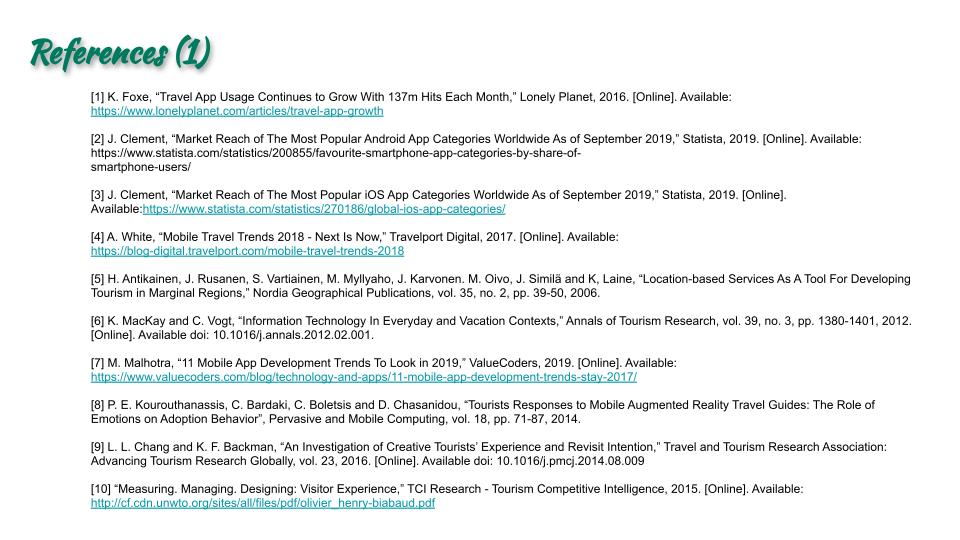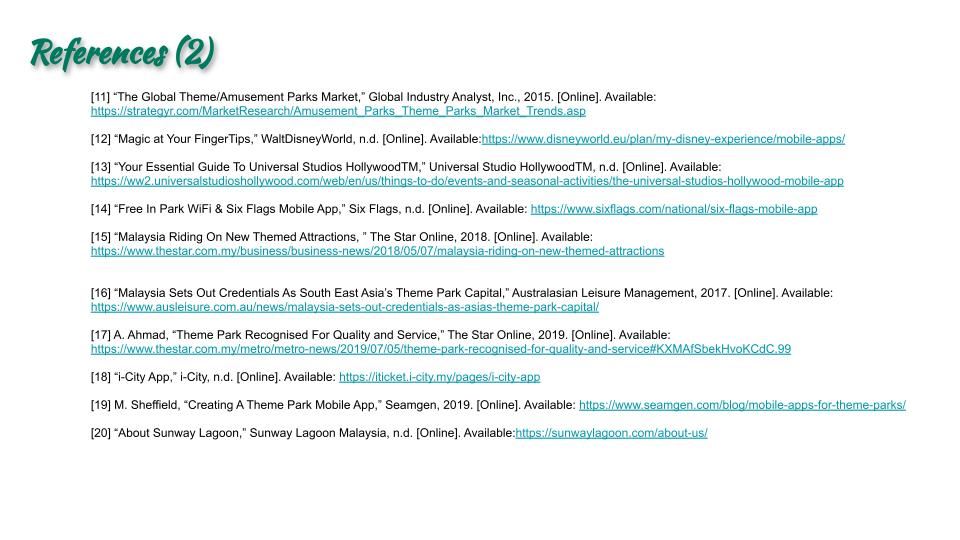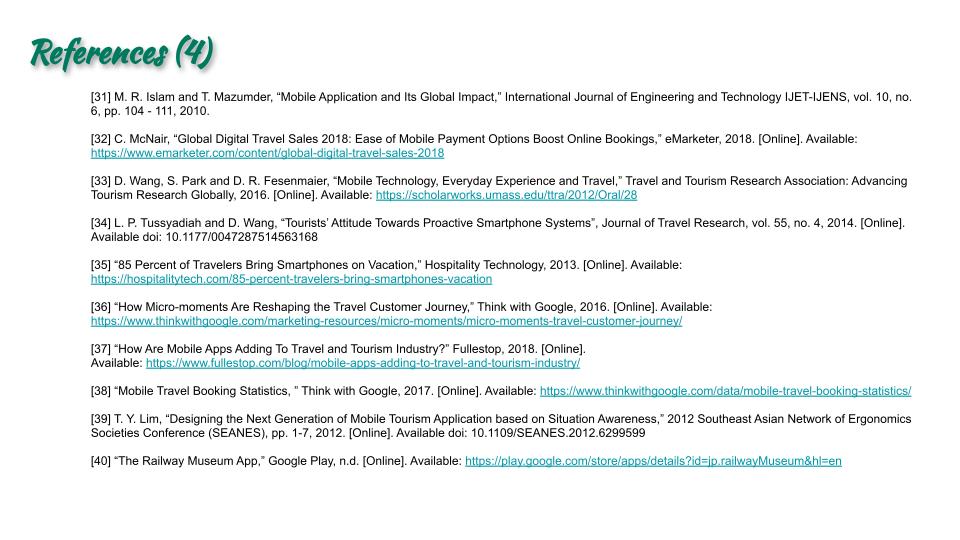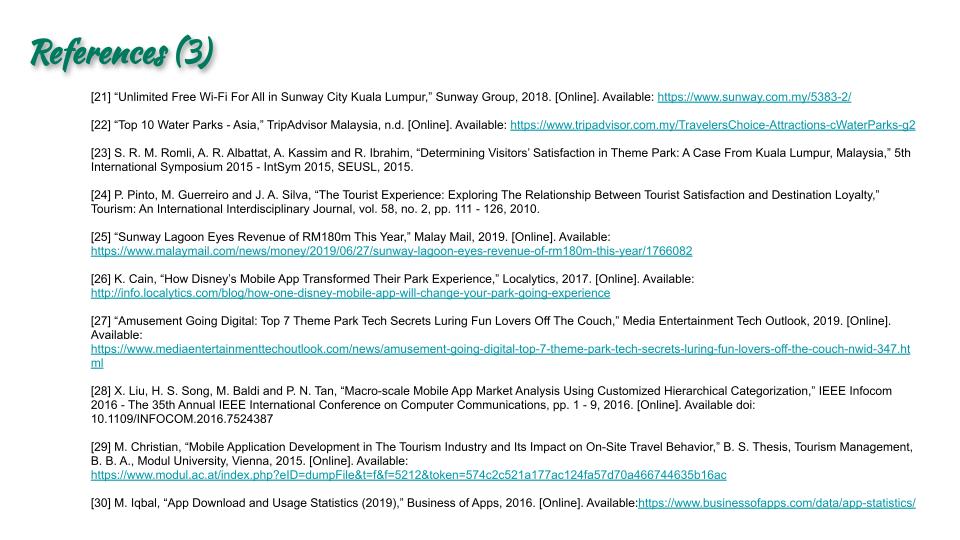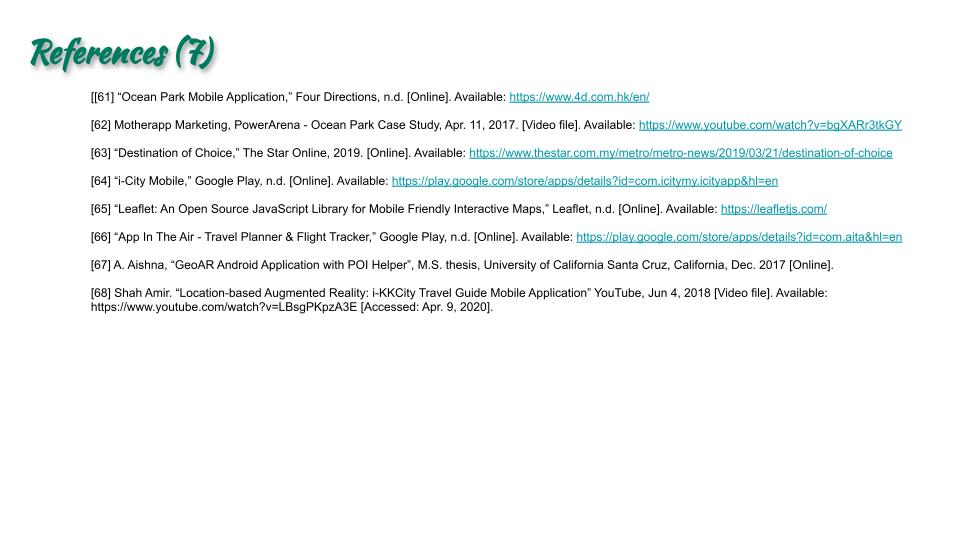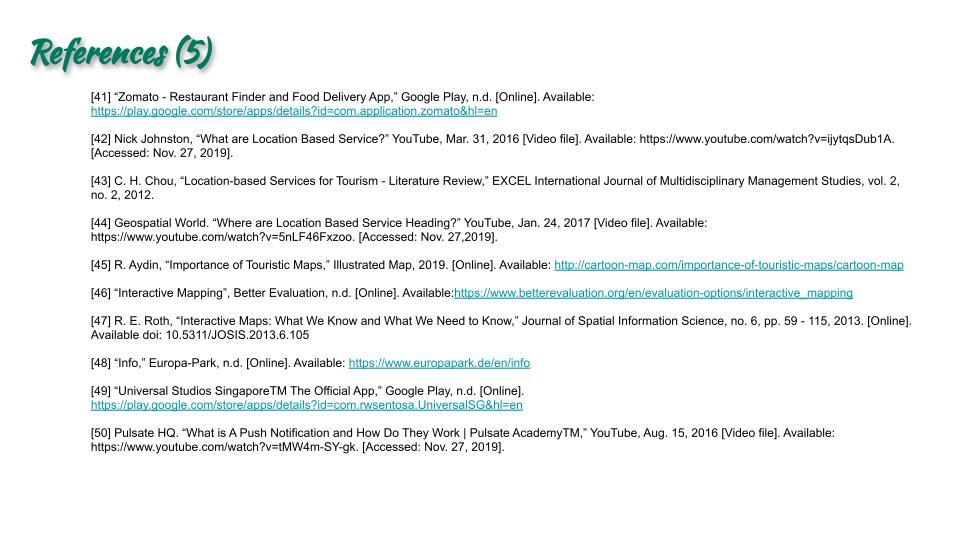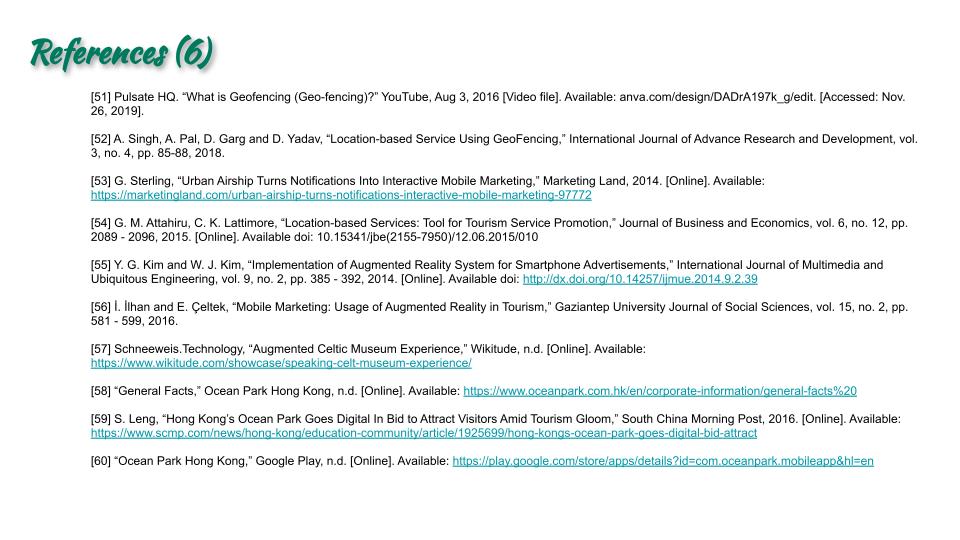
Cheng Man Chan
Mobile travel has become a significant trend due to the emergence of smartphones and mobile
technology. Existing researches show that the integration of location-based services (LBS) is
potentially adding significant value to the mobile tourism industry. The purpose of this study is to
develop a location-based mobile application for theme park visitors to enhance their visiting
experience. The application of location-based solutions such as an interactive map, push notification
services with geofencing and augmented reality tour guides will be involved in this study. Google
Map SDK for Android, Google ARCore Sceneform, GeoFire, and SQLite methodology is adopted
to build the application. An online survey is conducted to evaluate the user acceptance for the mobile
application by sending Android Package Kit (APK) to the users. The result shows that majority of
respondents had a positive attitude towards the application and agreed that the application will
enhance their park visiting experience. The conclusion can be drawn that the application can be
further improved with features that contribute to the digitalization of outdoor parks or other fields
in mobile tourism.

Cheng Man Chan
The Research
MOBILE TRAVEL has become a significant trend due to the emergence of smartphones and mobile technology. Existing researches show that the integration of location-based services (LBS) is potentially adding significant values to the mobile tourism industry. The purpose of this study is to develop a location-based mobile application for theme park visitors to enhance their visiting experience. The application of location-based solutions such as interactive map, push notification services with geofencing and augmented reality tour guide will be involved in this study. Google Map SDK for Android, Google ARCore Sceneform, GeoFire and SQLite methodology is adopted to build the application. An online survey is conducted to evaluate the user acceptance for the mobile application by sending Android Package Kit (APK) to the users. The result shows that majority of respondents had a positive attitude towards the application and agreed that the application will enhance their park visiting experience. The conclusion can be drawn that the application can be further improved with features that contribute to the digitalization of outdoor parks or other fields in mobile tourism.
- Android Studio 3.4 (Java, xml)
- Android Map SDK
- ARCore SDK
- Ground Overlay
- Google ARCore Sceneform
- SQLite
- GeoFire
- Android Phone (Android 7.0 or higher)
➀
I stayed at a hostel which nearby the amusement park when I studied in the university, I can hear the laughs and fun from my balcony everyday. One day my lecturer assigned us to do a mobile application project, then there's a sudden thought popped into my mind: let's build a theme park application! In the midst of assignment, I found that building mobile application can be fun and interesting. After the project, my supervisor, Dr Lau suggested me to carry it on and enhance the development with location-based features and augmented reality in my final year project...

➋
Application's Major Functionalities
INTERACTIVE MAP
GEOFENCING NOTIFICATION
AR GUIDE/FEATURE
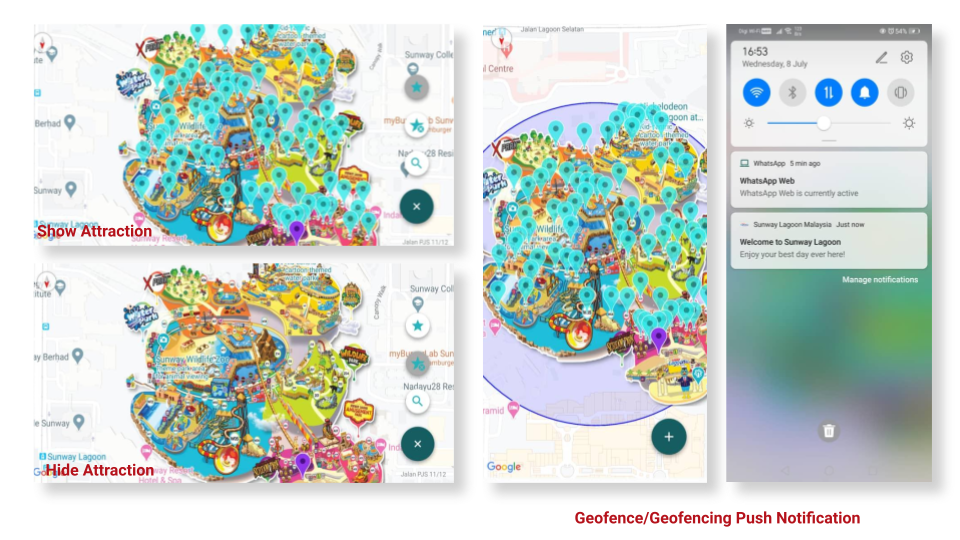
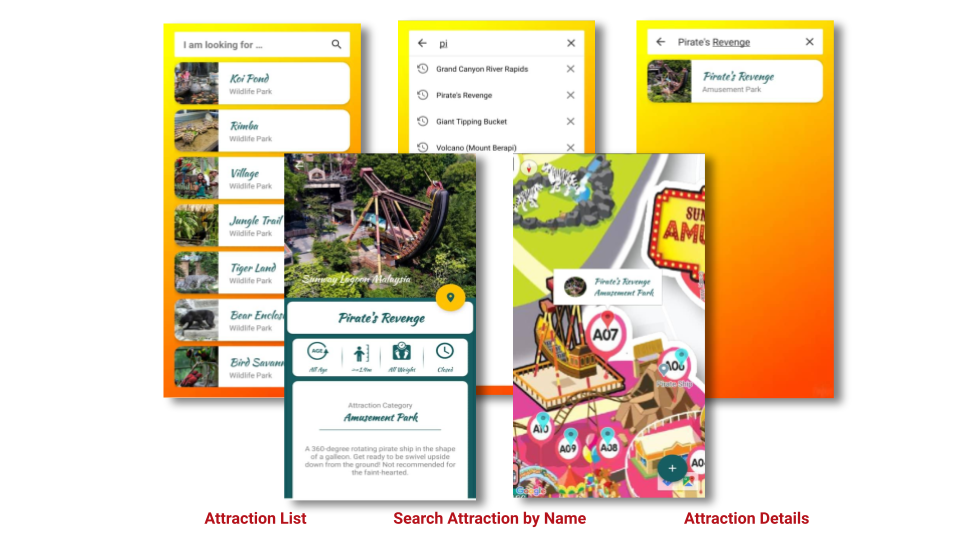
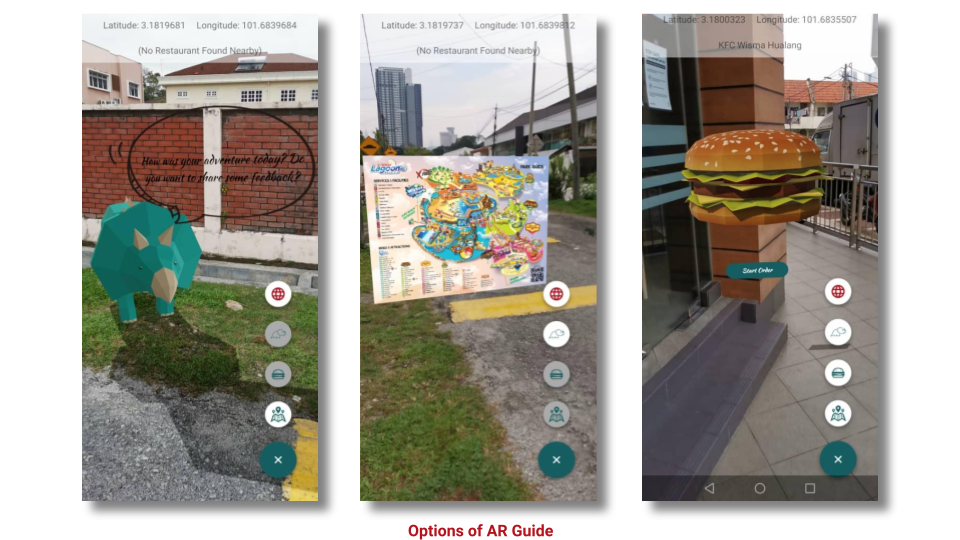
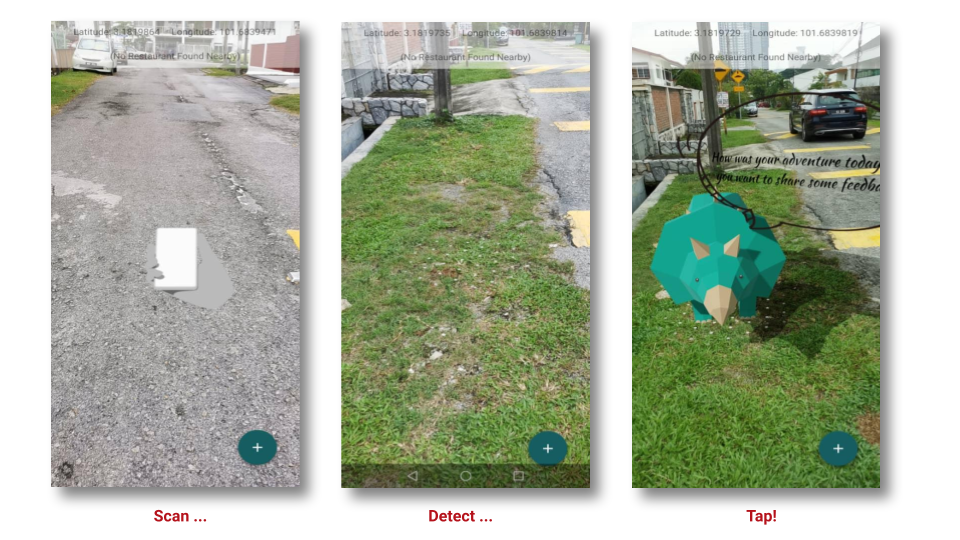
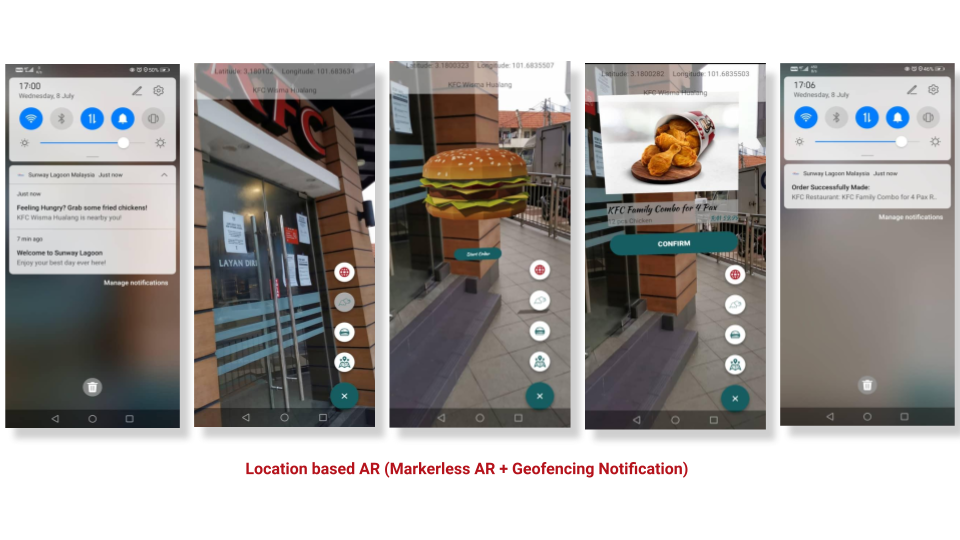
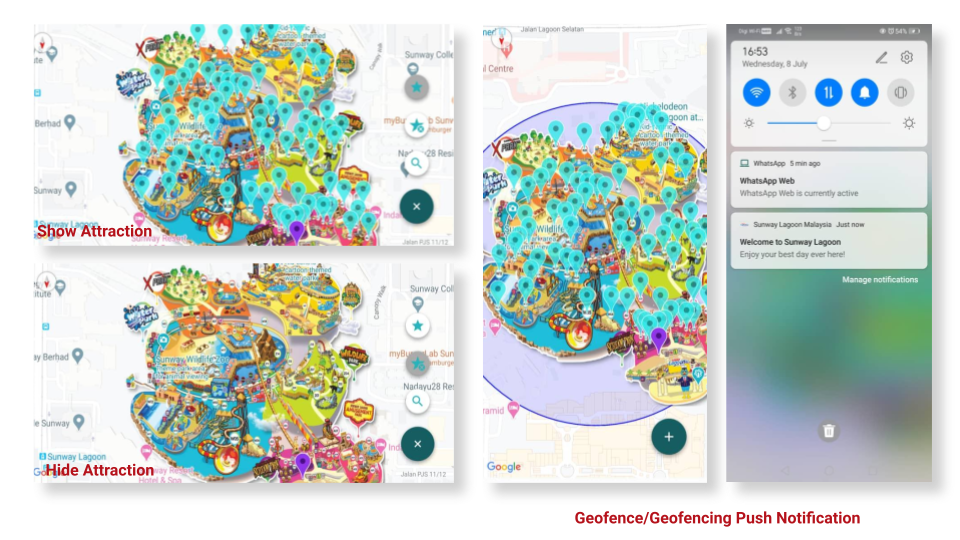

➂

Results & Findings
To evaluate the prototype, an online survey is conducted for the user acceptance testing by sending APK to the users and collecting their feedback through Google Forms. The survey is collecting their feedback on the user interface design, usefulness and ease-of-use of the application, perceived enjoyment and attitude towards the developed application with the 5-likert scale. Overall, 12 responses are collected in the survey.
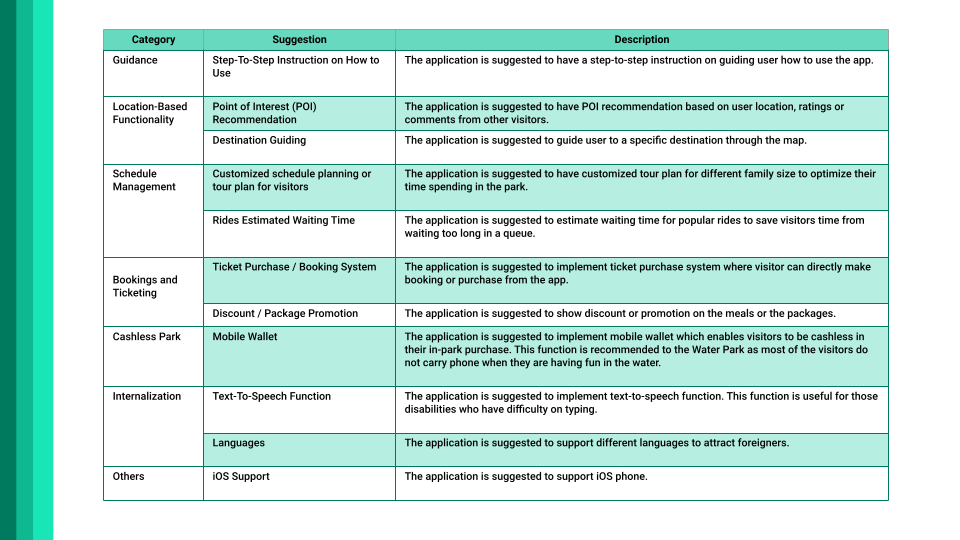
Here are some suggestions on improvement taken from the survey which are all inspring to me (Thank you so much!) and also can be future developed to enhance the visitor experience.
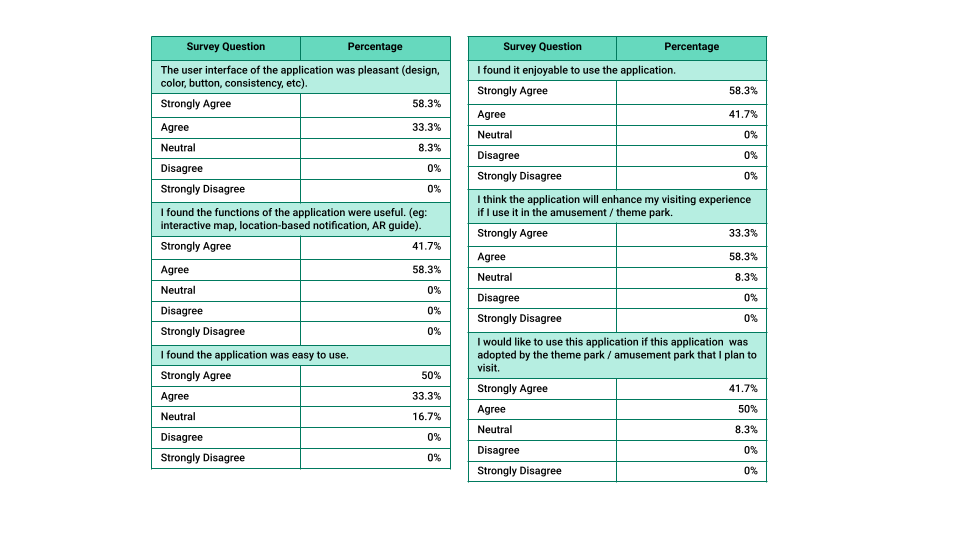
We found that majority of the testers which are 58% and 41% agree or strongly agree that three main functions of the application are useful. When it comes to ease of use, 16.7% of the testers were neutral while the rest either agrees or strongly agrees. While majority (91.7%) agrees and strongly agrees that the application will enhance their visiting experience at the theme park.
Overall, the application has received very positive feedback as for its usefulness and ease of use. Hence, the user interface of the application, designed to be simple and user-friendly, is well received. From the survey questions on the willingness to adopt the application in their future visit, most of the respondents reflected that they will be using this application if the application is adopted by the theme park that they plan to visit in future.

Conclusion
The results from the user acceptance survey also show that the respondents are satisfied with the functionality of the application and agree that the application will enhance their visitor experience. The possibility to allow visitors make interaction with the application by finding or locating a point of interest or even making food order using location-based AR has showcased that how an AR visitor application can help in improving visitor experience which also contribute as the first step to the theme park digitalization.
The suggestions from the user testing are also can be considered as the input for potential future work. Also, it is important to think about suitable strategy to attract visitors to download the application. Commonly, visitors only need the application when they are inside the park and after their visits, they tend to uninstall the application. Ideas can be generated to encourage users to continue using the application so that they may return to the theme park soonest possible. In this way, the application can also become a marketing and engagement tool which will in return increase revenue.
I would like to express my very great appreciation to Assoc. Prof. Dr Lau Sian Lun, my research supervisor, for his ehthusiatic encouragement and guidance support of this research work. I wish to thank Lancaster UC Conference for giving me this precious chance to present my work. I would also like to thank Sunway Lagoon Management and the 12 anonymous respondents that participate in the survey. My grateful thanks are also extended to Ms. Lim Woan Ning, one of my favourite programming lecturer in Sunway University for always being helpful and understanding. Besides, I very much appreciate to my friends Ng Xin Hui, Choo En-Ni, Yeap Khor Chin, Liew Hui Yong, Lee Pui Yen, Tang Shu Jian, Tan Chen Lin and Kok Tim Joon who are always supporting me for every decision I made. Finally, I wish to thank my parents and family members for their support and encouragement throughout my study.
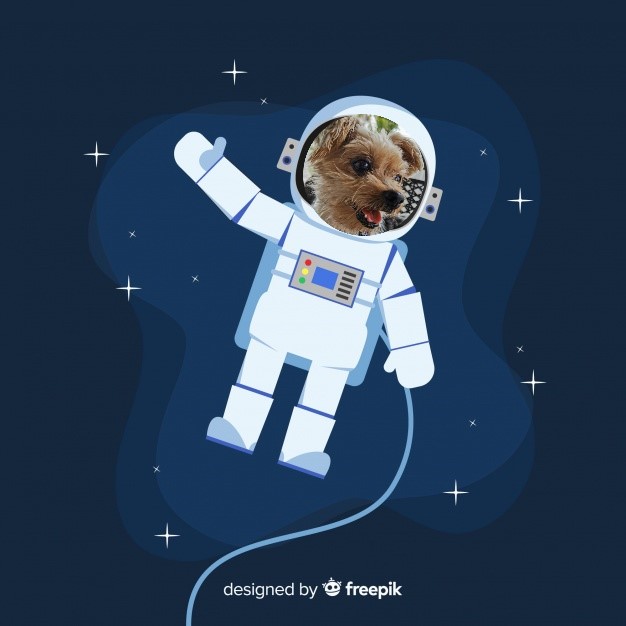
Frankie has left me in December 2020, thank you very much for existing in my life, I miss you and I love you ♥
